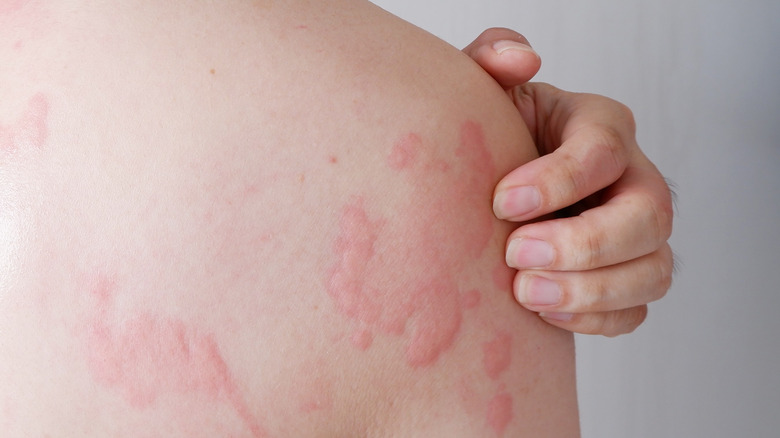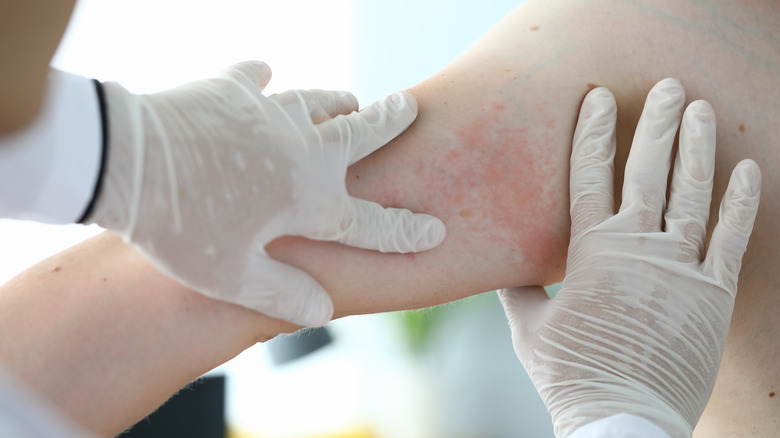How To Get Rid Of Hives
A tell-tale sign of an allergic reaction? Hives. Those red bumps on your skin are highly annoying, especially if they're causing you to itch all over. Sure, there's Benadryl and other anti-allergic medicine, but what if that's not working at the moment? Or, get this, what if your hives are caused by something other than your allergies (via The Healthy)?
So, what is your solution? The outlet noted that medicine usually does the trick with getting rid of your hives, however; a pill or two may not prevent those angry bumps from reappearing. "Most hives go away within 15 minutes of application of medications," Flora Waples, a medical director of Restor Medical Spa in Denver, told The Healthy. "But they can frequently come back in crops, every four to six hours, and this can sometimes go on for a couple of days while you are working whatever the offending substance was out of your body."
That said, Healthline recommends applying cool compresses such as a frozen bag of veggies or ice over your skin. The coldness will relieve any irritation that hives are causing. The only caution to this solution is that it may take a while, so be sure to continue applying the cold compress multiple times a day. The outlet also recommends bathing in an anti-itch solution (aka an oatmeal bath)!
How to prevent hives
Though the cause of hives still remains unsolved (aside from allergies), researchers have shown that stress increases the risk of hives. So, relax and practice some yoga, per The Healthy. There's also mediation and breathing exercises too.
However, if your relaxation techniques aren't working out, then maybe it's time to see a doctor. The Healthy added a trip to your local doctor will determine the root cause behind those itchy, angry red bumps. "It can sometimes be hard to determine the cause of chronic urticaria [hives], which can make it challenging to treat," Kelly Bickle, a dermatologist in Santa Monica, told the outlet. "Treating the causative agent, if it can be identified, is the most appropriate way to treat."
Healthline also reported that a doctor can also get you prescriptions for oral steroids that'll stop your hives. Though, the outlet does caution that these prescription drugs have a wide range of side effects, including high blood sugar, increased weight, and decreased immune response. So, maybe a trip to the doctor should be your last resort if the at-home remedies aren't working.

